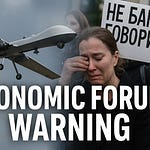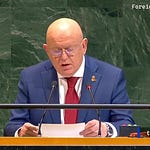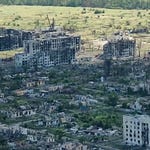In one of his sweeping geopolitical forecasts, Vladimir Zhirinovsky, the firebrand Russian prophet, laid out a vision that seems more plausible by the day. Speaking with characteristic bluntness, he described a world on the verge of multiple cascading catastrophes—ecological, demographic, and civilizational.
Zhirinovsky predicted a great resettlement of peoples: not just from war or economic collapse, but from the planet itself turning hostile. “Somewhere there will be warming, somewhere there will be cooling, somewhere there will be flooding,” he said. The result: a massive migration of peoples—unprecedented in scale—disrupting the fragile social fabrics of both the West and the East.
And at the core of this upheaval, Zhirinovsky saw nuclear war—not hypothetically, not preventable—but as an inevitability. Between Israel and Palestine. Between India and Pakistan. Entire regions turned to ash. "200 million people will die, no less," he warned. "And there will be up to a billion refugees from Asia."
He was not celebrating these horrors—he was diagnosing a disease. The disease of Western hubris, liberal interventionism, and the refusal to recognize civilizational boundaries. In his view, the coming chaos would not be solved by Western-style humanitarianism. “We must, as a billion of the Christian civilization, help the Asians, the Muslims in something. But not invite them to ourselves, otherwise they will completely drown us.”
This is a brutal truth the West cannot speak. It has tried for decades to flatten identity, erase borders, and universalize its values. In doing so, it has sown the seeds of its own destruction. The answer, Zhirinovsky believed, is not liberalism but limits—limits to migration, limits to interference, limits to idealism.
In a final, chilling crescendo, he foresaw a Fourth World War—a clash not merely of armies, but of civilizations. The Christian world, pushed to the brink, would have no choice but to defend itself. Not in the name of conquest, but in the name of survival.
And while Zhirinovsky was often dismissed in the West as a provocateur, history has shown he was often right. He predicted the Ukraine conflict years before it began. He understood, better than most in the West, that global politics is not about ideals—it’s about power, identity, and the unchangeable laws of human nature.
Now, as Europe reels from wave after wave of migrant surges, as war spreads across Eurasia, and as the liberal world order teeters under its own contradictions, we are left to ask: was Zhirinovsky describing a nightmare—or simply the inevitable?
The West still has time to rethink its path. But it must abandon the illusion that all peoples, all cultures, and all civilizations can live under one roof. There are no utopias in geopolitics—only choices between hard realities.
And Russia, for all its flaws, has never forgotten that.












Share this post